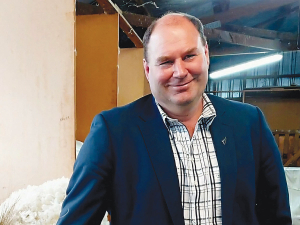The Government is pausing the rollout of freshwater farm plans until system improvements are finalised.
This was jointly announced yesterday by Agriculture Minister Todd McClay, Environment Minister Penny Simmonds and Associate Environment Minister Andrew Hoggard.
“Improving the freshwater farm plan system to make it more cost-effective and practical for farmers is a priority for this Government,” Hoggard says.
“Freshwater farm plans support farmers in managing freshwater risks, but the current system is too costly and not fit-for-purpose.
“We have heard the concerns of the sector and Cabinet has agreed to pause the rollout of freshwater farm plans while potential changes are considered. Minor amendments to the Resource Management Act (RMA) will enable the pause.
“Once these amendments are made, farmers will not be required to submit a freshwater farm plan for certification while changes to the freshwater farm plan system are underway.
“We want freshwater farm plans to acknowledge the good work many farmers are already doing. The key thing for farmers is to make a start and keep up their efforts – their work will not be wasted,” Hoggard says.
Regional councils are required by law to be developing a new regional policy statement for freshwater when the new Government has told them new guidelines are on the way.
Farmers are concerned that the issue will cause them headaches in the next 12 months, trying to get the councils just to slow down until the central government comes up with a new solution
The Government says it will work with the sector, iwi, and regional councils to simplify requirements and enable more local catchment-level solutions.
Several regions have already started implementing freshwater farm plans in specific areas, including Waikato, Southland, the West Coast, Otago, and Manawatū-Whanganui.
Agriculture Minister Todd McClay says the Government has moved swiftly to improve resource management laws and reduce costs for farmers.
“In May, we introduced a Bill to amend the RMA to repeal intensive winter grazing regulations and change stock exclusion regulations to remove the contentious low slope map,” McClay says.
“We are focused on getting Wellington out of farming and freeing up farmers to do what they do best - sustainably produce the high-quality, and safe food the world needs.”



















